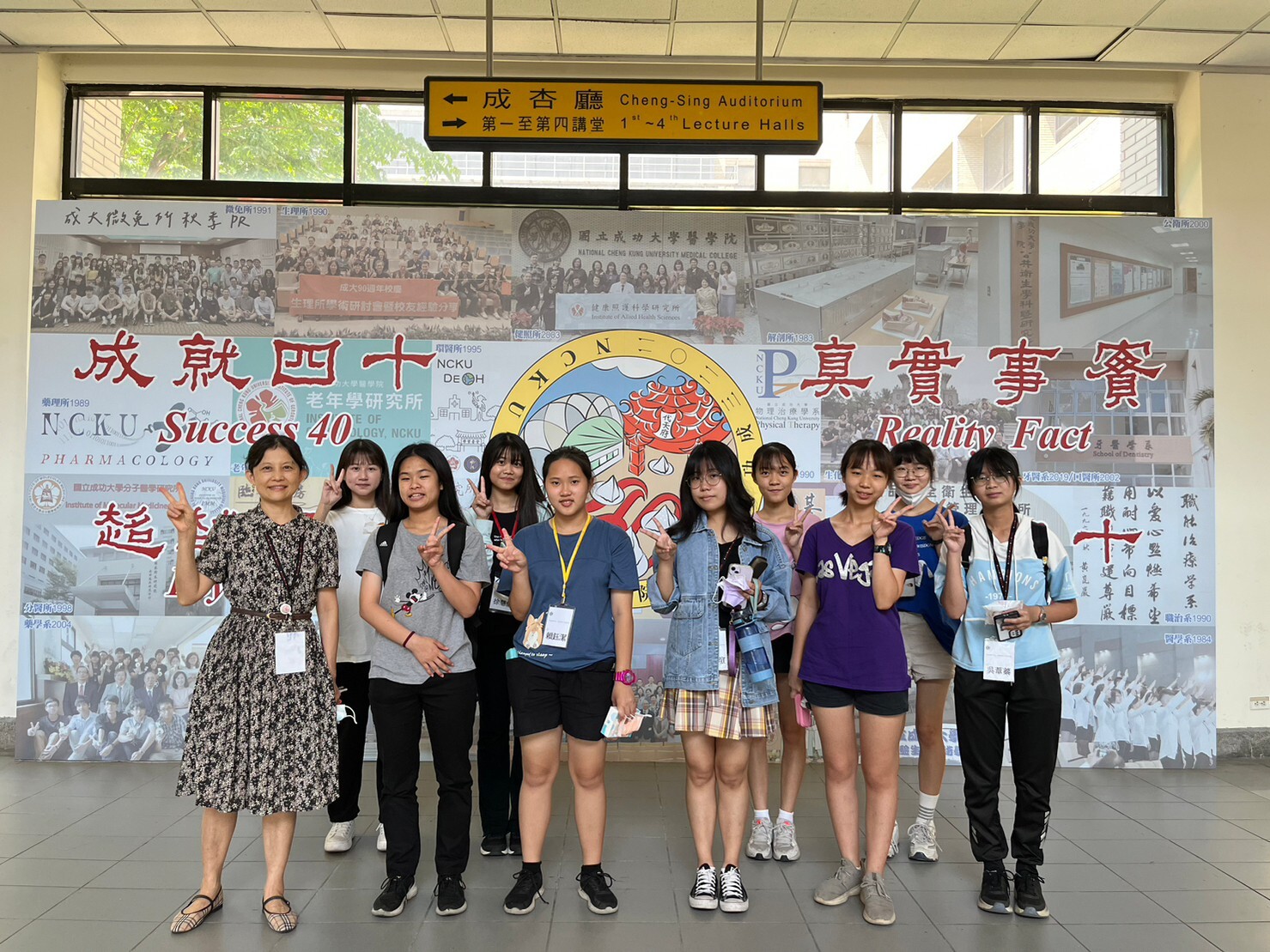Public health plays a crucial role in promoting the health of social groups. National Cheng Kung University (NCKU) is the first in the nation to establish a Department of Public Health with all-English instruction at its College of Medicine, officially enrolling students this year (2024) with a focus on international students. A plaque unveiling ceremony was held on the morning of September 14, welcoming new students. President Ching-Te Lai sent a congratulatory message, and prominent public health scholar and former Vice President Chien-Jen Chen attended, highlighting the importance of NCKU's new department and marking a significant milestone for public health education and research in Southern Taiwan.
NCKU established its College of Medicine in 1983 along with a public health discipline, and later founded a Master's program in Public Health in 2000, followed by doctoral programs and part-time Master's programs. The addition of the Department of Public Health will create a complete educational framework to cultivate public health talent at various levels for both domestic and international students. Over the years, the Public Health Institute has trained many master's and doctoral students from Northeast Asia, Southeast Asia, South Asia, Africa, and Europe, sharing Taiwan's valuable experiences in public health promotion.
For its first cohort in 2024, the Public Health Department has enrolled nine students from countries and regions including Vietnam, Japan, Mongolia, Belize, Saint Lucia, the Marshall Islands, Malaysia, and Hong Kong. Attendees at the ceremony included former Vice President Chien-Jen Chen, NCKU Vice President Woei-Jer Chuang, NCKU College of Medicine Dean Yan-Shen Shan, Department Chair Pei-Chen Lee, and Taiwan Public Health Association President Chun-Yu Yang, all of whom expressed their congratulations. Former Vice President Chen and senior public health scholar Professor Jung-Te Wang were invited to give keynote speeches in English at the unveiling ceremony.
In his congratulatory message, President Lai expressed delight at the unveiling of the Department of Public Health and encouraged the continuous development of relevant courses to cultivate outstanding talent, enhancing international engagement and contributing to the growth of higher education in Taiwan.
Vice President Chuang stated that the establishment of the Public Health Department signifies the completeness of NCKU's medical education and represents a step towards globalization with all-English instruction. Taiwan's efforts in public health have received international recognition, particularly for early achievements in the control of endemic diseases. NCKU, as a comprehensive university, offers many interdisciplinary learning opportunities, and he hopes students will carry their knowledge to the world, elevating NCKU's College of Medicine, the Public Health Department, and global public health to new heights.
Dean Shen noted that the department, supported by President Lai and former Vice President Chen, completes the final piece of the medical school's puzzle. One reason for targeting international students is to align with Taiwan's New Southbound Policy, as many Southeast Asian countries require Taiwan's public health investments, experiences, and successes. Strong public health development can significantly impact national welfare, and he hopes the department will grow robustly, contributing to the advancement of public health in Taiwan.
Chun-Yu Yang, President of the Taiwan Public Health Association, stated that the establishment of the Public Health Department at NCKU is a critical component of public health education in Southern Taiwan. By primarily recruiting international students, the department not only cultivates global public health professionals but also enhances Taiwan's visibility and influence in international public health.
Following this, former Vice President Chen delivered a speech titled "Public Health Research and Policy-making: Achievements and Challenges in Taiwan," highlighting the contributions of Taiwan's public health departments in education, research, and public service. He noted that academic research guides health policy, improving citizens' health and benefiting global health development.
He cited various examples demonstrating how Taiwan's public health departments have successfully promoted public health programs over the years, including the iodization of salt to reduce goiter prevalence, using antibiotic ointment to treat trachoma and decrease blindness rates, eradicating malaria with DDT and patient screening, and vaccinating against polio. He also mentioned efforts to lower liver cancer mortality rates through exploring its causes, hepatitis B vaccination, and antiviral treatments, among others. Additionally, he highlighted the role of public health education and research in helping the government successfully control the SARS and COVID-19 pandemics. He hopes the NCKU Public Health Department will excel in talent cultivation, academic research, and public service, contributing significantly to health promotion and disease prevention in Taiwan and worldwide.
Professor Jung-Te Wang delivered a speech titled "Developing Health Technology Assessment to Integrate Prevention with Diagnosis & Treatment for the Sustainability of National Health Insurance of Taiwan." He argued that simply discussing remuneration systems or conducting cost-effectiveness assessments for new drugs does not necessarily ensure sustainability in healthcare. Instead, he called for integrating epidemiology and effectiveness research with health technology assessments, leveraging healthcare data and real-world evidence to improve the efficiency, equity, and sustainability of national health insurance.
On the same day as the unveiling ceremony, an exhibition on the history of the "Blackfoot Disease" (a significant public health issue in Taiwan) was held with the support of the Blackfoot Disease Medical Memorial Museum. The exhibition not only illustrated the important role of public health in addressing this issue but also showcased the successful eradication of the disease to international students, demonstrating NCKU's commitment to public health education. Although Taiwan is not a member of the World Health Organization or the World Health Assembly, it has made substantial contributions to global health through its medical and public health expertise. The pandemic response to COVID-19 further highlighted Taiwan's robust public health foundation and capabilities.
NCKU established its College of Medicine in 1983 along with a public health discipline, and later founded a Master's program in Public Health in 2000, followed by doctoral programs and part-time Master's programs. The addition of the Department of Public Health will create a complete educational framework to cultivate public health talent at various levels for both domestic and international students. Over the years, the Public Health Institute has trained many master's and doctoral students from Northeast Asia, Southeast Asia, South Asia, Africa, and Europe, sharing Taiwan's valuable experiences in public health promotion.
For its first cohort in 2024, the Public Health Department has enrolled nine students from countries and regions including Vietnam, Japan, Mongolia, Belize, Saint Lucia, the Marshall Islands, Malaysia, and Hong Kong. Attendees at the ceremony included former Vice President Chien-Jen Chen, NCKU Vice President Woei-Jer Chuang, NCKU College of Medicine Dean Yan-Shen Shan, Department Chair Pei-Chen Lee, and Taiwan Public Health Association President Chun-Yu Yang, all of whom expressed their congratulations. Former Vice President Chen and senior public health scholar Professor Jung-Te Wang were invited to give keynote speeches in English at the unveiling ceremony.
In his congratulatory message, President Lai expressed delight at the unveiling of the Department of Public Health and encouraged the continuous development of relevant courses to cultivate outstanding talent, enhancing international engagement and contributing to the growth of higher education in Taiwan.
Vice President Chuang stated that the establishment of the Public Health Department signifies the completeness of NCKU's medical education and represents a step towards globalization with all-English instruction. Taiwan's efforts in public health have received international recognition, particularly for early achievements in the control of endemic diseases. NCKU, as a comprehensive university, offers many interdisciplinary learning opportunities, and he hopes students will carry their knowledge to the world, elevating NCKU's College of Medicine, the Public Health Department, and global public health to new heights.
Dean Shen noted that the department, supported by President Lai and former Vice President Chen, completes the final piece of the medical school's puzzle. One reason for targeting international students is to align with Taiwan's New Southbound Policy, as many Southeast Asian countries require Taiwan's public health investments, experiences, and successes. Strong public health development can significantly impact national welfare, and he hopes the department will grow robustly, contributing to the advancement of public health in Taiwan.
Chun-Yu Yang, President of the Taiwan Public Health Association, stated that the establishment of the Public Health Department at NCKU is a critical component of public health education in Southern Taiwan. By primarily recruiting international students, the department not only cultivates global public health professionals but also enhances Taiwan's visibility and influence in international public health.
Following this, former Vice President Chen delivered a speech titled "Public Health Research and Policy-making: Achievements and Challenges in Taiwan," highlighting the contributions of Taiwan's public health departments in education, research, and public service. He noted that academic research guides health policy, improving citizens' health and benefiting global health development.
He cited various examples demonstrating how Taiwan's public health departments have successfully promoted public health programs over the years, including the iodization of salt to reduce goiter prevalence, using antibiotic ointment to treat trachoma and decrease blindness rates, eradicating malaria with DDT and patient screening, and vaccinating against polio. He also mentioned efforts to lower liver cancer mortality rates through exploring its causes, hepatitis B vaccination, and antiviral treatments, among others. Additionally, he highlighted the role of public health education and research in helping the government successfully control the SARS and COVID-19 pandemics. He hopes the NCKU Public Health Department will excel in talent cultivation, academic research, and public service, contributing significantly to health promotion and disease prevention in Taiwan and worldwide.
Professor Jung-Te Wang delivered a speech titled "Developing Health Technology Assessment to Integrate Prevention with Diagnosis & Treatment for the Sustainability of National Health Insurance of Taiwan." He argued that simply discussing remuneration systems or conducting cost-effectiveness assessments for new drugs does not necessarily ensure sustainability in healthcare. Instead, he called for integrating epidemiology and effectiveness research with health technology assessments, leveraging healthcare data and real-world evidence to improve the efficiency, equity, and sustainability of national health insurance.
On the same day as the unveiling ceremony, an exhibition on the history of the "Blackfoot Disease" (a significant public health issue in Taiwan) was held with the support of the Blackfoot Disease Medical Memorial Museum. The exhibition not only illustrated the important role of public health in addressing this issue but also showcased the successful eradication of the disease to international students, demonstrating NCKU's commitment to public health education. Although Taiwan is not a member of the World Health Organization or the World Health Assembly, it has made substantial contributions to global health through its medical and public health expertise. The pandemic response to COVID-19 further highlighted Taiwan's robust public health foundation and capabilities.
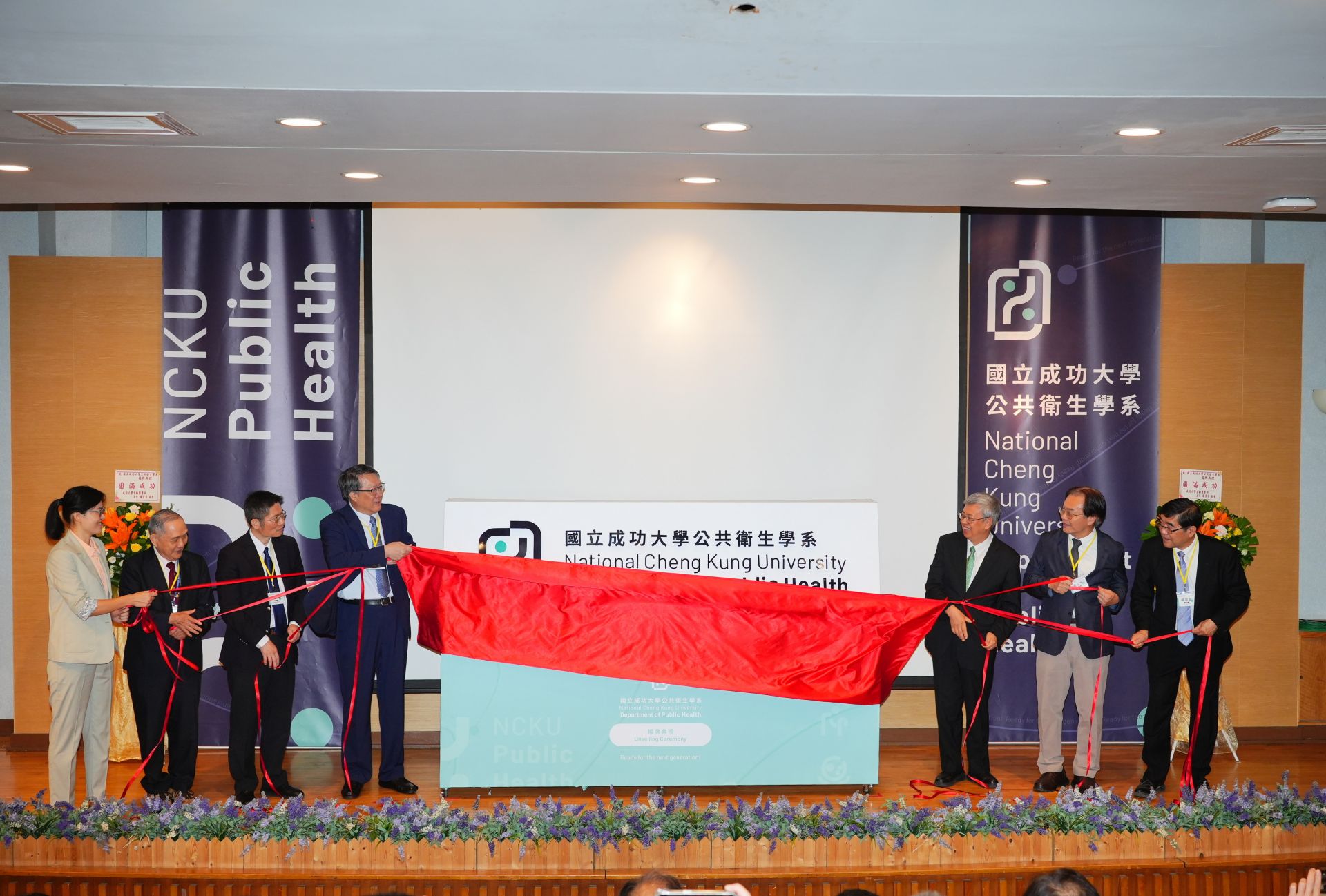
Unveiling of the National Cheng Kung University Public Health Department
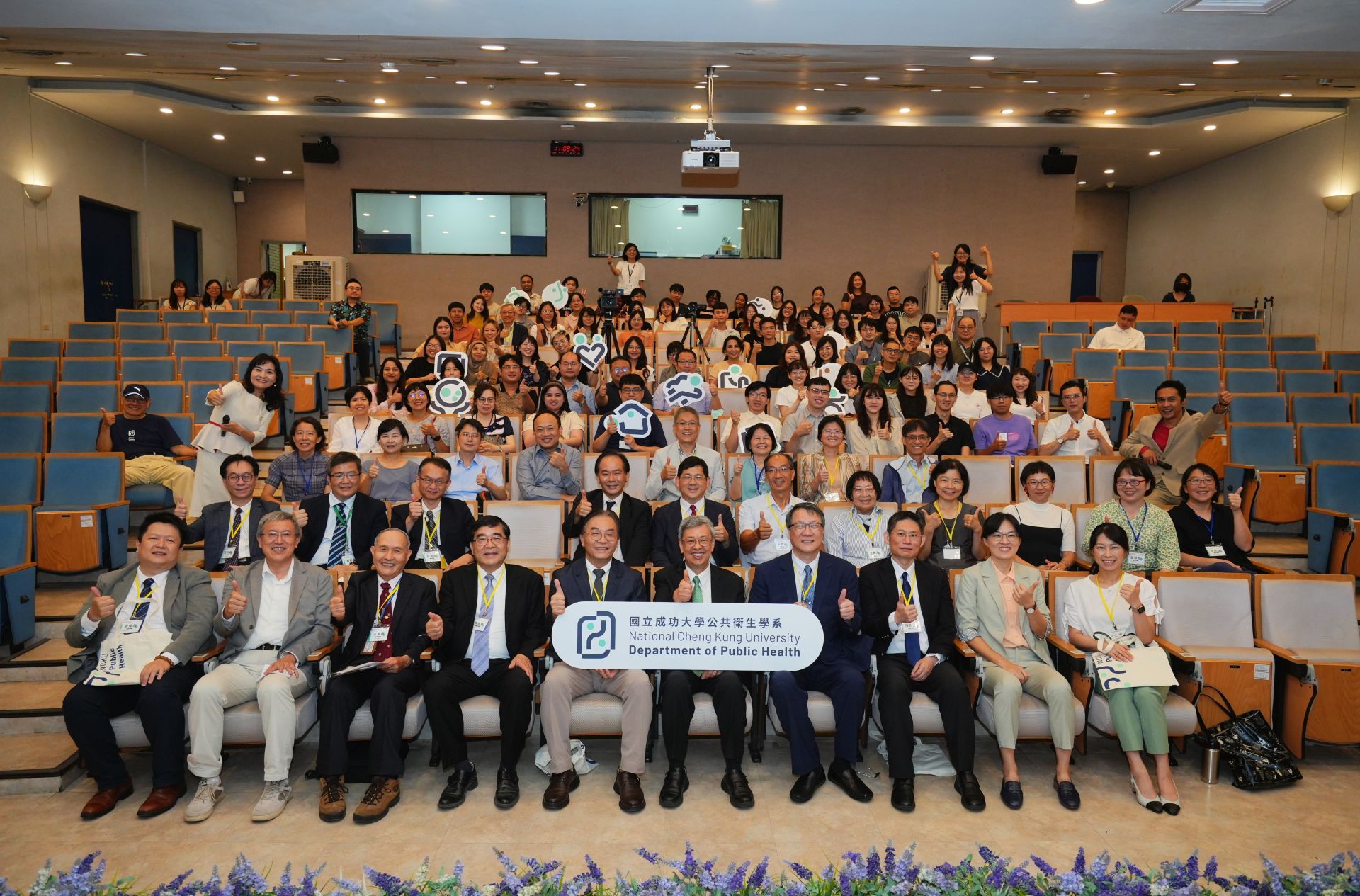
Group Photo of Attendees at the Unveiling Ceremony
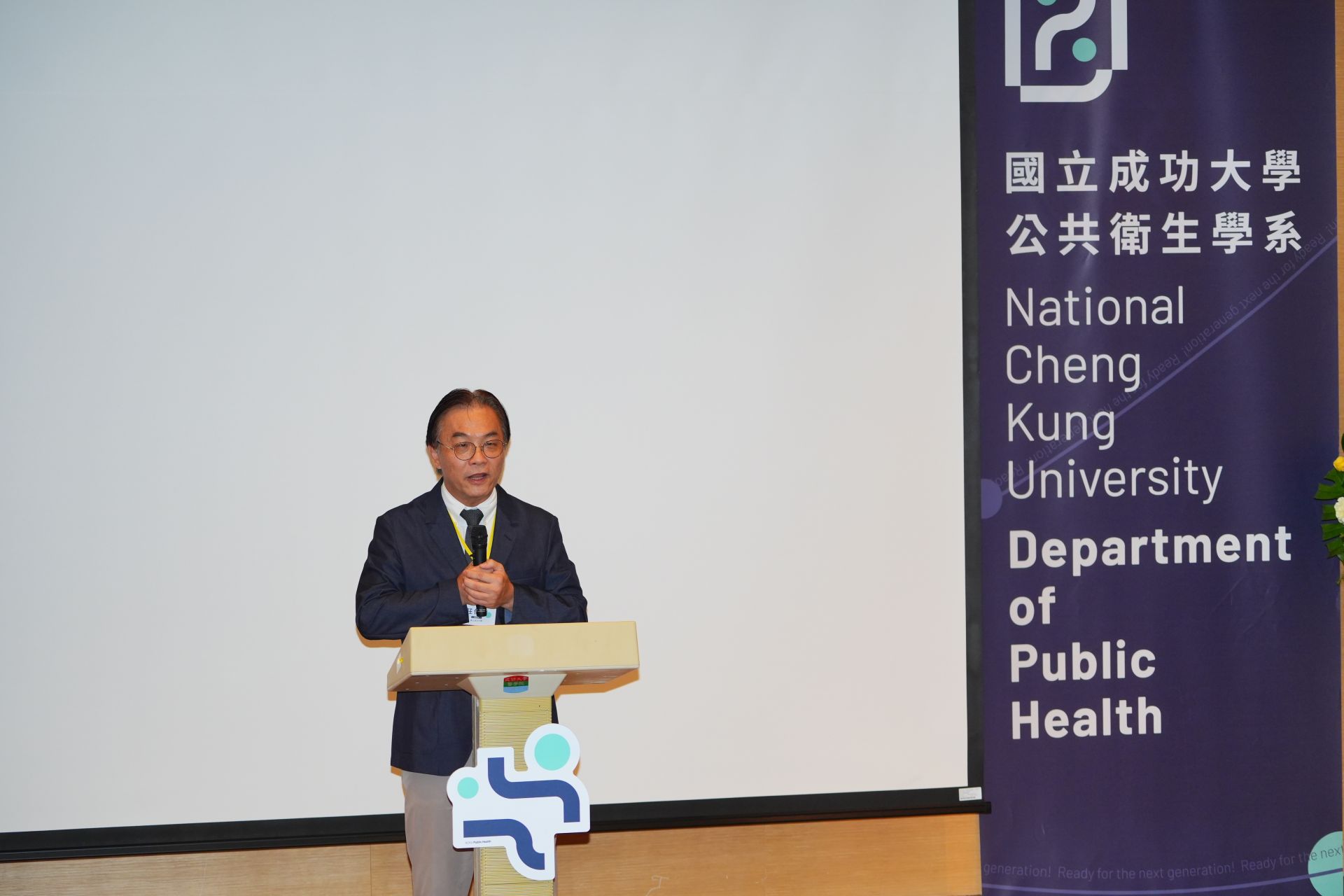
Vice President Woei-Jer Chuang's Speech Expresses High Expectations for the Public Health Department
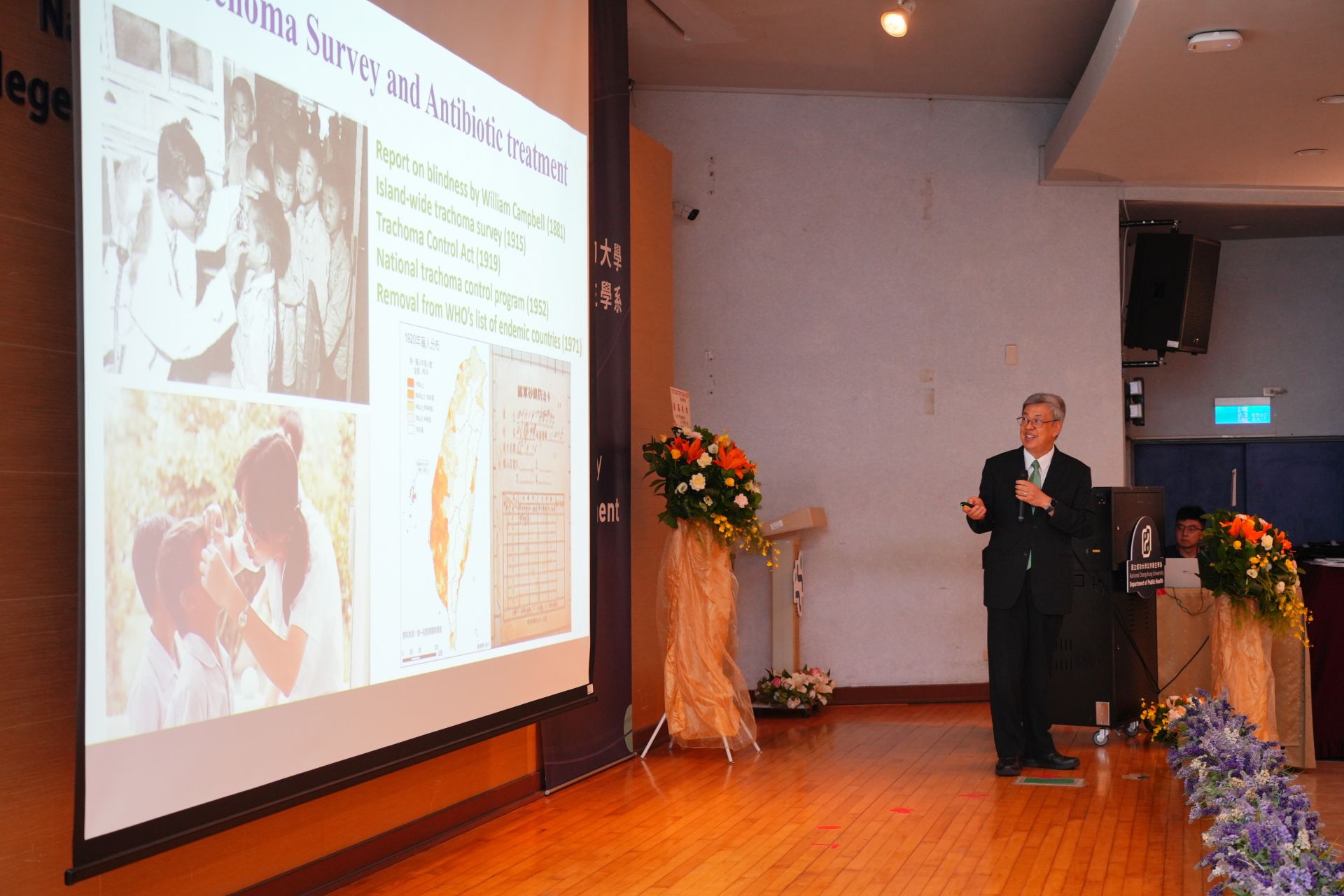
Former Vice President Chien-Jen Chen's Speech Highlights the Outstanding Contributions of Taiwan's Public Health Department in Education, Research, and Public Service
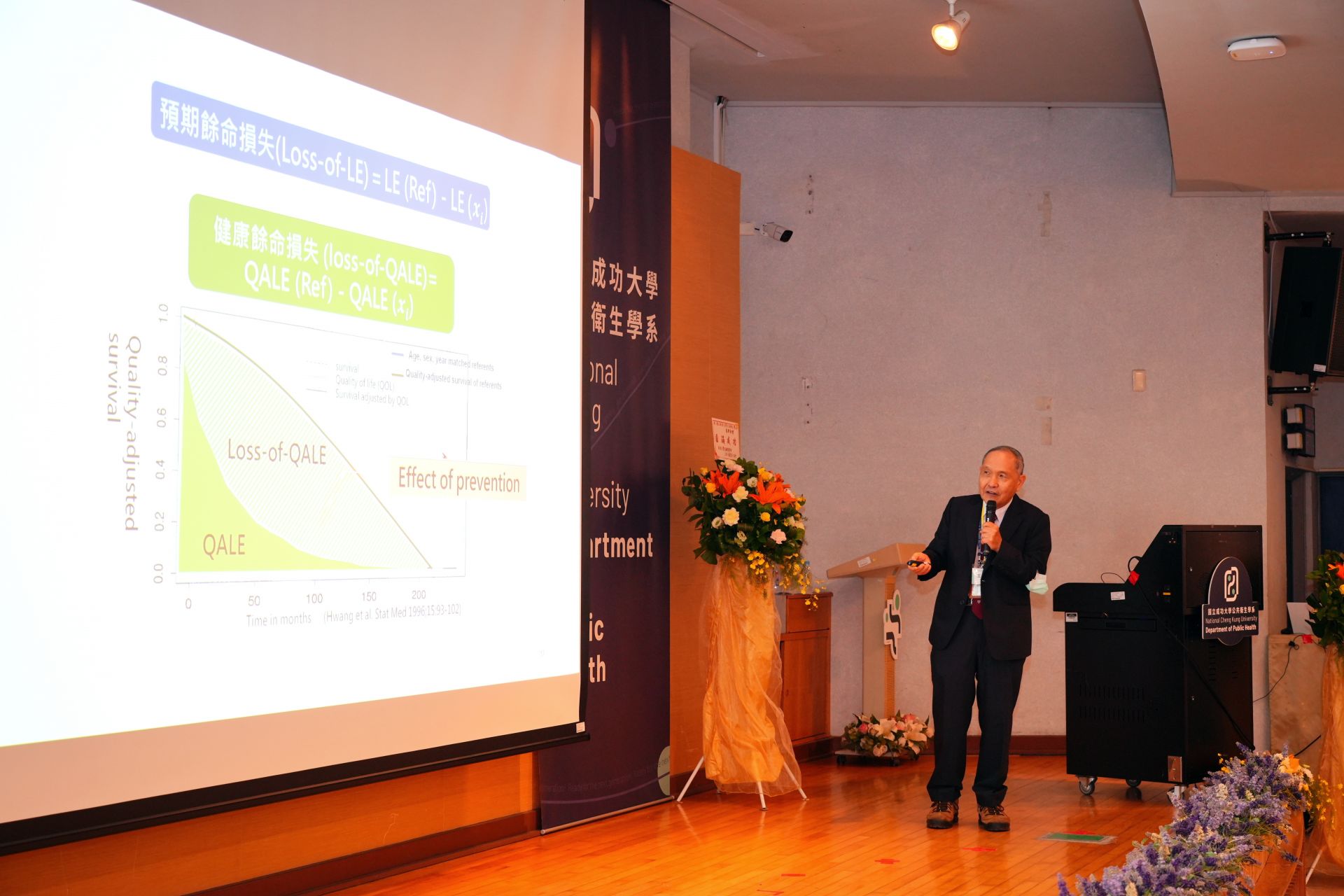
Professor Wang Rongde Delivers Keynote Speech at the Inauguration Ceremony

SDG3The torch relay for the 113th National Intercollegiate Athletic Games arrived at NCKU.
View more
SDG3National Cheng Kung University (NCKU) has been awarded the FISU Healthy Campus International Certification.
View more